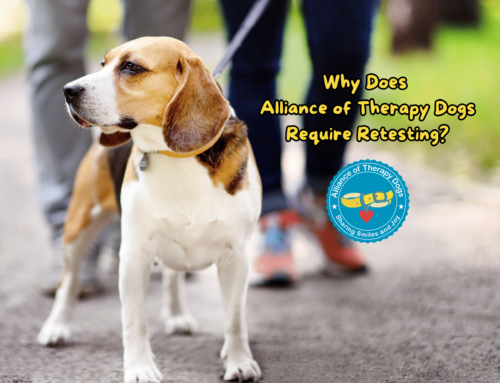Life for children with an Autism Spectrum Disorder (ASD) or other developmental disabilities can be challenging. ASD causes developmental impairment that often leads to other issues like rigid behavior, narrow range of interests, social withdrawal, and anxiety. Children with ASD often have short attention spans and difficulties with social communication.
There are various therapies and behavioral management programs available to offer support to children living with this neurological and developmental disorder. While some therapists focus on developing communication skills of ASD patients, others stress reducing the problematic behaviors associated with autism. In addition to this, there is something else that is helping people with autism – spending time with therapy dogs.
Therapy Dogs for the Treatment of Autism Spectrum Disorder
According to Francesca Cirulli, a senior researcher at the National Institute of Health, Italy, many studies show that dogs work as social catalysts by encouraging people to bond with each other. A few studies have found this notion true in terms of kids with autism.
A review published in the Journal of Alternative and Complementary Medicine has shown evidence that therapy dogs can play a crucial role in helping autistic patients develop communication and social skills. The team reviewed six published studies that covered the effects of dogs on children with autism. Out of the six studies, four were on therapy dogs that assisted therapists during the treatment sessions. The was found that autistic children were more vocal and engaged in the sessions when dogs were around.
Another study that reviewed the behavior of 22 autistic children revealed that children were more engaged and talkative during sessions where dogs were present. A separate study showed that children who had therapy dogs during the session were less aggressive and more friendly.
You see, therapy dogs can assist autistic children by making them feel socially and emotionally secure. These trained furry friends can help in improving the emotional wellbeing of the child and further aid in developing their sensory integration.
Advantages of Therapy Dogs in Treating ASD
Social Engagement
Kids with autism experience some difficulty in socializing with others. A therapy dog can help an autistic child to break the ice and motivate them to mingle with others. When needed, therapy dogs can divert the attention of autistic kids away from distractions and help focus on a task.
Calm During Meltdowns
Therapy dogs have the ability to sense and feel the emotions of people they are attending to. A therapy dog can sometimes reduce the severity or totally circumvent the onset of a meltdown during a visit.
Cognitive and Emotional Growth
Autistic kids sometimes lack cognitive skills. Their rigid behavior often makes it difficult for them to form an emotional connection with others. Since therapy dogs promote positive feelings of care, love, and empathy in kids with autism. Therapy dogs love to be hugged, touched, and cuddled by children which further instills the feeling of care in autistic kids.
Sensory Support
Children with autism need sensory stimulation through regular games and activities. Therapy dogs can be trained to assist autistic children throughout the process by means of various games and activities like, tug of war, hide and seek, and massage.
Reassurance During Anxiety
A therapy dog can make a perfect companion to battle a sudden bout of anxiety and restlessness during a visit. Therapy dogs are known for offering relief from stress. The presence of therapy dogs offers a sense of security for autistic kids. .
Improved Vocal Skills
Autistic kids have impaired communication skills. It has been noted that such kids speak more frequently when a therapy dog is around. A therapy dog can bring significant change in speech challenged or nonverbal children by promoting their speech.
Companionship
Autistic kids have difficulty in making eye contact. This developmental disorder also prevents them from socializing and bonding with others. However, therapy dogs have the ability to quickly bond with children. This helps the child experience friendship and cope up with loneliness. Unlike human friends, therapy dogs are non-judgemental, which further helps an autistic child become comfortable around others.
Autism is as stressful for families as it is for the child suffering from it. However, therapy dogs don’t just help autism kids battle the disorder, but they also help parents and families to find peace and strength. Studies have shown that the support from therapy dogs can help parents of an autistic child feel relaxed and experience less stress.
With 17,000 active members, we at ATD are committed to helping special needs kids, adults, and elderly people find love, care, and support. Our network of well-trained therapy dogs and their caretakers are always willing to make others smile and feel loved and wanted.
For more information, call us at 307-432-0272 or contact us today.






